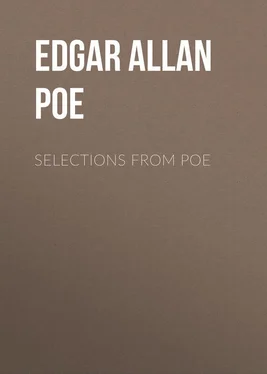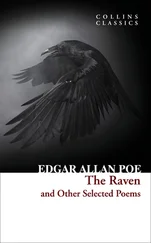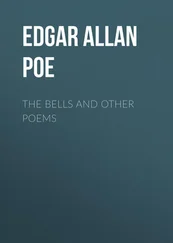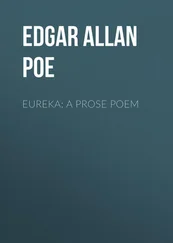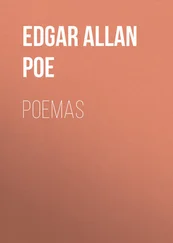Edgar Poe - Selections from Poe
Здесь есть возможность читать онлайн «Edgar Poe - Selections from Poe» — ознакомительный отрывок электронной книги совершенно бесплатно, а после прочтения отрывка купить полную версию. В некоторых случаях можно слушать аудио, скачать через торрент в формате fb2 и присутствует краткое содержание. Жанр: literature_19, foreign_antique, foreign_prose, на английском языке. Описание произведения, (предисловие) а так же отзывы посетителей доступны на портале библиотеки ЛибКат.
- Название:Selections from Poe
- Автор:
- Жанр:
- Год:неизвестен
- ISBN:нет данных
- Рейтинг книги:3 / 5. Голосов: 1
-
Избранное:Добавить в избранное
- Отзывы:
-
Ваша оценка:
- 60
- 1
- 2
- 3
- 4
- 5
Selections from Poe: краткое содержание, описание и аннотация
Предлагаем к чтению аннотацию, описание, краткое содержание или предисловие (зависит от того, что написал сам автор книги «Selections from Poe»). Если вы не нашли необходимую информацию о книге — напишите в комментариях, мы постараемся отыскать её.
Selections from Poe — читать онлайн ознакомительный отрывок
Ниже представлен текст книги, разбитый по страницам. Система сохранения места последней прочитанной страницы, позволяет с удобством читать онлайн бесплатно книгу «Selections from Poe», без необходимости каждый раз заново искать на чём Вы остановились. Поставьте закладку, и сможете в любой момент перейти на страницу, на которой закончили чтение.
Интервал:
Закладка:
The fundamental fact about Poe is a very peculiar and unhappy temperament, certain characteristic qualities of which began to disclose themselves in early boyhood and, fostered by the vicissitudes of his career, developed throughout his life.
In youth he was nervous, sensitive, morbid, proud, solitary, and wayward; and as the years went by, bringing poverty, illness, and the bitterness of failure, often through his own faults, the man became irritable, impatient, often morose. He had always suffered from fits of depression, – "blue devils," Mr. Kennedy called them, – and though he was extravagantly sanguine at times, melancholy was his usual mood, often manifesting itself in a haunting fear of evil to come. The peculiar character of his wonderful imagination made actual life less real to him than his own land of dreams: the "distant Aidenn," the "dim lake of Auber," the "kingdom by the sea," seemed more genuine than the landscapes of earth; the lurid "city in the sea" more substantial than the streets he daily walked.
Because of this intensely subjective and self-absorbed character of mind, he had no understanding of human nature, no insight into character with its marvelous complexities and contradictions. With these limitations Poe, as might be expected, had a very defective sense of humor, lacked true sympathy, was tactless, possessed little business ability, and was excessively annoyed by the dull routine and rude frictions of ordinary life. He was always touched by kindness, but was quick to resent an injury, and even as a boy could not endure a jest at his expense. He had many warm and devoted friends whom he loved in return, but the limitations of his own nature probably made a really frank, unreserved friendship impossible; and when a break occurred, he was apt to assume that his former friend was an utter villain. These personal characteristics, in conjunction with a goading ambition which took form in the idea of an independent journal of his own in which he might find untrammeled expression, added uneasiness and restlessness to a constantly discontented nature. To some extent, at least, Poe realized the curse of such a temperament, but he strove vainly against its impulses.
The one genuine human happiness of this sad life was found in a singularly beautiful home atmosphere. Husband and wife were passionately devoted to each other, and Mrs. Clemm was more than a mother to both. She says of her son-in-law: "At home, he was simple and affectionate as a child, and during all the years he lived with me, I do not remember a single night that he failed to come and kiss his 'mother,' as he called me, before going to bed." This faithful woman remained devoted to him after Virginia's death, and to his memory, when calumny assailed it, after his own.
The capital charge against Poe's character has been intemperance, and although the matter has been grossly exaggerated and misrepresented, the charge is true. Except for short periods, he was never what is known as dissipated, and he struggled desperately against his weakness, – an unequal struggle, since the craving was inherited, and fostered by environment, circumstances, and temperament. One of his biographers tells of bread soaked in gin being fed to the little Poe children by an old nurse during the illness of their mother; and there is another story, already mentioned, of the little Edgar, in his adoptive home, taught to pledge the guests as a social grace. Drinking was common at the time, wine was offered in every home and at every social function, and in the South, where Poe spent his youth and early manhood, the spirit of hospitality and conviviality held out constant temptation. To his delicate organization strong drink early became a veritable poison, and indulgence that would have been a small matter to another man was ruinous to him; indeed, a single glass of wine drove him practically insane, and a debauch was sure to follow. Indulgence was stimulated, also, by the nervous strain and worry induced by uncertain livelihood and privation, the frequent fits of depression, and by constant brooding. Sometimes he fought his weakness successfully for several years, but always it conquered in the end.
Moreover, he speaks of a very special cause in the latter part of his life, which in fairness should be heard in his own written words to a friend: "Six years ago a wife, whom I loved as no man ever loved before, ruptured a blood vessel in singing. Her life was despaired of. I took leave of her forever and underwent all the agonies of her death. She recovered partially and I again hoped. At the end of a year the vessel broke again. I went through precisely the same scene… Then again – again – and even once again, at varying intervals. Each time I felt all the agonies of her death – and at each accession of her disorder I loved her more dearly and clung to her life with more desperate pertinacity. But I am constitutionally sensitive – nervous in a very unusual degree. I became insane, with long intervals of horrible sanity. During these fits of absolute unconsciousness, I drank – God only knows how often or how much. As a matter of course, my enemies referred the insanity to the drink, rather than the drink to the insanity… It was the horrible never-ending oscillation between hope and despair, which I could not longer have endured without total loss of reason. In the death of what was my life, then, I received a new, but – O God! – how melancholy an existence!"
This statement, and the other facts mentioned, are not offered as wholly excusing Poe. Doubtless a stronger man would have resisted, doubtless a less self-absorbed man would have thought of his wife's happiness as well as of his own relief from torture. Yet the fair-minded person, familiar with Poe's unhappy life, and keeping in mind the influences of heredity, temperament, and environment, will hesitate to pronounce a severe judgment.
Poe was also accused of untruthfulness, and this accusation likewise has a basis of fact. He repeatedly furnished or approved statements regarding his life and work that were incorrect, he often made a disingenuous show of pretended learning, and he sometimes misstated facts to avoid wounding his own vanity. This ugly fault seems to have resulted from a fondness for romantic posing, and is doubtless related to the peculiar character of imagination already mentioned. Perhaps, too, he inherited from his actor parents a love of applause, and if so, the trait was certainly encouraged in early childhood. There is no evidence that he was ever guilty of malicious or mercenary falsehood.
Another of his bad habits was borrowing, but it must be remembered that his life was one long struggle with grinding poverty, that he and those dear to him sometimes suffered actual hunger and cold. Many who knew him testified to his anxiety to pay all his debts, Mr. Graham referring to him in this particular as "the soul of honor."
In a letter to Lowell, Poe has well described himself in a sentence: "My life has been whim – impulse – passion – a longing for solitude – a scorn of all things present in an earnest desire for the future." Interpreted, this means that in a sense he never really reached maturity, that he remained a slave to his impulses and emotions, that he detested the ordinary business of life and could not adapt himself to it, that his mind was full of dreams of ideal beauty and perfection, that his whole soul yearned to attain the highest pleasures of artistic creation. His was perpetually a deeply agitated soul; as such, it was natural he should outwardly seem irritable, impatient, restless, discontented, and solitary. It is impossible to believe that there was any strain of real evil in Poe. A man who could inspire such devotion as he had from such a woman as Mrs. Clemm, a man who loved flowers and children and animal pets, who could be so devoted a husband, who could so consecrate himself to art, was not a bad man. Yet his acts were often, as we have seen, most reprehensible. Frequently the subject of slander, he was not a victim of conspiracy to defame. Although circumstances were many times against him, he was his own worst enemy. He was cursed with a temperament. His mind was analytical and imaginative, and gave no thought to the ethical. He remained wayward as a child. The man, like his art, was not immoral, but simply unmoral. Whatever his faults, he suffered frightfully for them, and his fame suffered after him.
Читать дальшеИнтервал:
Закладка:
Похожие книги на «Selections from Poe»
Представляем Вашему вниманию похожие книги на «Selections from Poe» списком для выбора. Мы отобрали схожую по названию и смыслу литературу в надежде предоставить читателям больше вариантов отыскать новые, интересные, ещё непрочитанные произведения.
Обсуждение, отзывы о книге «Selections from Poe» и просто собственные мнения читателей. Оставьте ваши комментарии, напишите, что Вы думаете о произведении, его смысле или главных героях. Укажите что конкретно понравилось, а что нет, и почему Вы так считаете.
